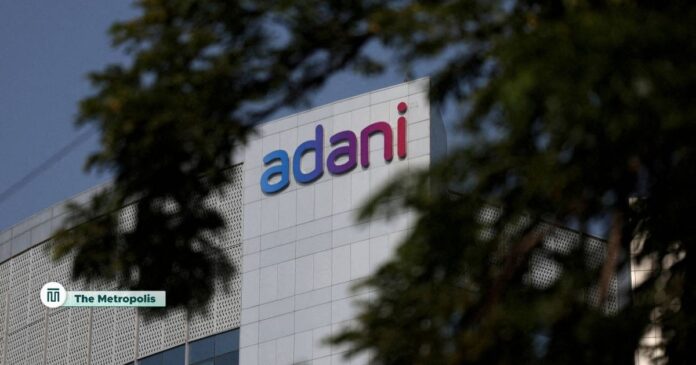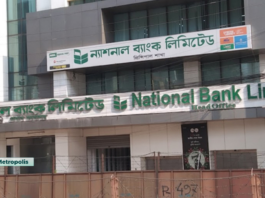Simon Mohsin – Political and International Affairs Analyst
THE DEAL
The Bangladesh Power Development Board (BPDB) and Adani Power Ltd. have signed a 25-year Power Purchase Agreement (PPA) for electricity generated from imported coal at the Godda power plant in India. Electricity will be transmitted to Bangladesh through a 106-kilometre transmission line built by Adani and an additional 28-kilometre line by the Power Grid Company of Bangladesh (PGCB). An Institute of Energy Economics and Financial Analysis report in April 2018 criticised the PPA for allowing Adani to transfer high coal and transmission costs to Bangladeshi consumers. Recently, the BPDB has sought to revise the PPA due to concerns over “excessive” coal pricing and to adjust the tariff structure before electricity imports. There is increasing concern in Bangladesh about the high cost of electricity from the Godda plant compared to local suppliers.
COST CONCERNS
Bangladesh’s decision to procure electricity from Adani Group has contributed to a significant 8% increase in electricity prices within Bangladesh. The Adani-operated 1,600 MW coal power facility has been a significant factor in driving up consumer electricity rates. In 2023, Bangladesh sourced electricity from Adani at Tk14.02 per kilowatt-hour, contrasting sharply with the average cost of Tk8 per unit for the total generation capacity of 14,000 MW. This discrepancy has led to a rise in the average unit cost of electricity by 7.69%, escalating it to Tk8.61 per unit—attributable primarily to the unfavourable import agreements in place with Adani Power. Before Adani’s involvement in the power sector, Bangladesh had been advantageously served by electricity imports from India. The importation of electricity initiated in 2013 under a framework agreement established in 2010 had seen relatively lower costs; at one point, electricity from India was priced at around Tk6 per unit before the significant depreciation of the taka against the dollar exacerbated the cost situation.
RISING DUES
The Adani Group supplies about 10% of Bangladesh’s electricity, significantly affecting the country’s power generation costs. Since Adani began selling power to Bangladesh, electricity became the most valuable export item, contributing to India’s power export bill exceeding $1 billion. Bangladesh faces a dollar crisis with unpaid electricity bills, costing an additional $100 million monthly due to imports from Adani. A study indicated Adani’s power is 56% more expensive than average imported coal and over 4% more than domestic coal. The Power Development Board (PDB) projects substantial financial burdens from electricity procurement and capacity charges associated with Adani’s Godda Power Plant. Despite plans for the plant to be operational by August 2022, the required infrastructure wasn’t completed on time, leading to
extra capacity charges. In November 2024, Adani Power warned of a complete supply suspension if unpaid bills of approximately $850 million were not addressed while reducing supply due to non-payment. By mid-November, the Bangladesh Bank authorized payments to Adani Power. Still, power imports were cut by 50% by early December due to reduced demand and ongoing payment disputes.
ENVIRONMENT AND HUMAN COST
The Bangladesh Working Group on External Debt has highlighted that the annual environmental and social costs linked to hazardous air pollutants and carbon dioxide emissions are estimated to be around USD 670 million. Over a lifetime, these costs could total approximately USD 24.72 billion. In Godda, the Adani Group is constructing a new coal-fired power station, sourcing coal from the Carmichael mine. This project has already displaced thousands of residents. Reports show that communities opposing the development of the Godda power station have endured severe consequences, including land seizures, destruction of crops, and violent reprisals from police. The implications of the Godda plant are significant, as it encroaches upon Indigenous land rights, threatens essential water resources, and poses a danger to local biodiversity. The plant is expected to extract around 36 billion liters of water yearly from the Ganges River, jeopardizing vital fish populations and the surrounding ecosystem. Local farmers in Godda have reported a drop in water levels, resulting in crop failures as Adani begins extensive groundwater pumping.
POLITICAL PATRONAGE
Adani Group’s agreement with Bangladesh highlights Indian Prime Minister Narendra Modi’s strong favouritism towards the conglomerate, extending beyond India’s borders. During his inaugural visit to Bangladesh in June 2015, Modi urged Hasina to facilitate Indian companies’ entry into the power generation, transmission, and distribution sector, with the Adani Group being a significant beneficiary of this initiative. Although the Indian government argues that the power import deal signed later with Adani, based on unsolicited proposals under the contentious Quick Enhancement of Electricity and Energy Supply (Special Provision) Act of 2010, is advantageous for Bangladesh, a confidential 163-page review conducted by industry experts found that the 25-year Godda deal falls short of being beneficial for the nation. Following the downfall of the Sheikh Hasina government on August 5, discussions around the Adani power deal resurfaced. Within a week, on August 12, India’s Ministry of Power paved the way for India’s export-only power plants to supply electricity to the domestic market in case of defaults in export payments. As India’s sole export-only power plant, Adani has emerged as the primary beneficiary of this shift in India’s energy export regulations. The agreement was finalised two years after Modi visited Dhaka. The plant’s first unit commenced commercial operations in April, while the second unit came online in June of the previous year. In July, Gautam Adani visited Dhaka to formally hand over the power plant, expressing on his X handle, “Honoured to have met Bangladesh PM Sheikh Hasina during the full load commencement and handover of the 1,600 MW
Ultra Super Critical Godda Power Plant,” alongside photos with the then-prime minister. Political analysts claimed that then Hasina, under significant pressure from the West to hold free and fair elections, secured her third consecutive term by garnering support from Indian and Chinese allies. Her controversial business arrangement with Adani might illuminate India’s decision to back her at all costs. Despite facing considerable domestic backlash, Hasina remained committed to operationalizing the power purchase agreement with Adani, which was perceived as a concession to a business group closely associated with Prime Minister Modi.
CORRUPTION CHRONICLES
On February 1, 2023, reports emerged from Bangladesh indicating that the Bangladesh Power Development Board (BPDB) has requested a revision of the Power Purchase Agreement (PPA) established in 2017 with Adani Power (Jharkhand) Limited. The BPDB contends that Adani is proposing an exorbitant price for coal, which will be imported for use in its thermal power plant in Godda, Jharkhand. This plant is intended to supply electricity to Bangladesh. There is growing recognition within the Hasina administration that the existing agreement disproportionately benefits Adani, raising concerns about its fairness to Bangladesh. In light of this, the Bangladeshi government is looking to renegotiate the 25-year PPA, leveraging the implications of the November indictment by U.S. prosecutors of Adani and seven other executives linked to a purported $265 million bribery scheme to strengthen their position in negotiations. In September, the government appointed a panel of experts tasked with a comprehensive review of significant energy agreements signed under Hasina’s leadership. Additionally, a Bangladeshi court has mandated an investigation into the specifics of the Adani deal, further complicating the situation for Adani Power.
WAY FORWARD
The BPDB is set to pay Adani nearly three times more for electricity than from other Indian sources and 1.5 times more than domestic production due to outdated capacity charges and tax assumptions. The Bangladeshi government’s rationale for this unfavorable Power Purchase Agreement (PPA) remains unclear. It is suggested that both Bangladesh and India explore the annulment of the current PPA in favor of a new agreement that aligns with the Paris Agreement commitments. There is also a recommendation for a No Electricity No Payment (NENP) policy related to Adani Power and an obligation for Adani to increase renewable energy supply. Historically, before the involvement of Adani, electricity imports from India were arguably cost-effective for Bangladesh. Power imports from India commenced in 2013 under a framework agreement established in 2010. Until the rise in the dollar exchange rate, the cost of electricity from India was approximately Tk6 per unit. With an average generation cost of Rs6.29 per unit, there are numerous sources from which Bangladesh could have acquired more economic power. Thus, at a minimum, Bangladesh should seek to transfer the contract to alternative sources in India and annul this unfavorable agreement. International bidding for projects like electricity power plants should exist, rather than directly giving the deal to other Indian companies. Bangladesh should work with India to build an equal relationship, thus avoiding signing such an unfair deal with India again.




